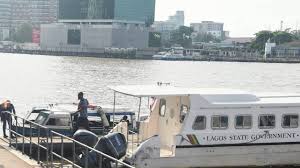By Milcah Tanimu
Nigeria is embarking on an ambitious project to build a coastal highway spanning 700 kilometers (435 miles), aiming to connect Lagos, its former capital, to Calabar, a port city near the border with Cameroon. The announcement has stirred controversy, particularly for Paul Onwuanibe, a business mogul who received notice to vacate his Landmark Beach resort to make way for the road.
Onwuanibe, the owner of the resort, expressed disbelief upon receiving the demolition order, which cited the resort’s location within the planned right-of-way of the coastal highway. Having acquired the land in 2007 before the highway plans were conceived, Onwuanibe faces a mix of emotions, including amazement, concern, and skepticism about the legitimacy of the directive.
Valued at over $200 million, the Landmark site hosts over 80 businesses and provides more than 4,000 direct jobs. It also contributes significantly to annual tax revenue, generating over 2 billion naira ($1.5 million), according to Onwuanibe.
The approval for the coastal road, granted on February 27 by federal authorities, has drawn comparisons to iconic coastal routes like Ireland’s Wild Atlantic Highway and the United States’ Pacific Coastal Highway. The project, estimated to cost over 1.06 trillion naira ($841 million), will feature five lanes on each side of the dual carriageway, along with a train track in the middle and spurs connecting to northern Nigeria.
While the coastal road promises economic benefits, environmentalists have raised concerns about its potential environmental impact. Similade Adeodun, a water and environment consultant based in Lagos, highlighted the risk of habitat destruction due to activities such as sand filling and dredging along coastal areas. Despite the anticipated economic gains, environmental considerations remain a crucial aspect of the coastal highway project.

